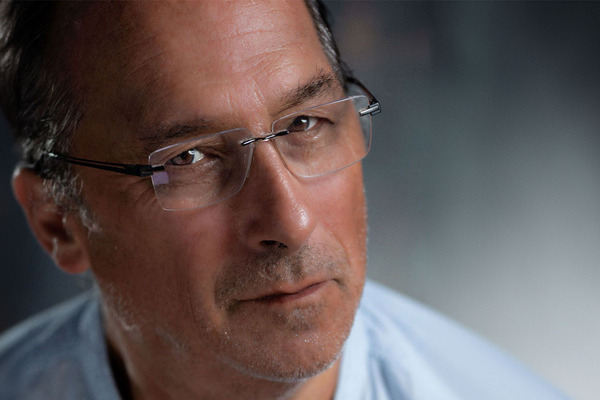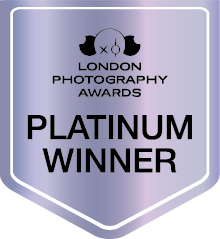
Ángel J. Sánchez
1. Can you introduce yourself and talk about how you got into photography?
I have a Bachelor’s Degree in ICTs and Advertising from the UPV-EHU, University of the Basque Country. My life has always been linked to photography in one way or another.
Thanks to my work for several advertising agencies, I have had the opportunity of collaborating with great fashion and advertising photographers such as Alejandro Cabrera, Michael Wray, Michael Shelley, Paco Navarro, Toni Riera, etc. from whom I have learned a great deal and kept feeding my passion.
But my interest in photography dates back further into the past. Going back to my childhood, I still recall how I used to play to capture snapshots by simply fixing images on my mind by quickly closing my eyes to retain a moment in memory, taking advantage of the effect of retinal persistence.
2. Where did you study photography?
From 1980 to 1982, I attended courses in analogical photography at the Cultural Association “El Desván” in Bilbao, while completing my university studies.
3. Do you remember your first shot? What was it?
I remember my first photo with a Kodak Instamatic, which was given to me during my First Communion celebration. During the event, a very popular person at the time approached, and I took my first photograph of them. However, I didn't wind the film properly, resulting in a very interesting double exposure.
4. What equipment do you use?
I work with Nikon cameras, a D7100 for travel and a D800, with different lenses among which I would highlight the Sigma Art 35mm, the Nikkor 50mm f1.4, and the Tamron SP 85mm. I have also managed to adapt several Mamiya lenses to my camera, which give a very special atmosphere to certain types of images.
5. What do you hope to achieve?
For me, photography is above all an escape valve and a way to communicate what I feel. Shifting the focus from advertising objectives and urgent demands to go out and look at things differently, to discover the beauty, what moves me, or what stirs me.
That's why I like to work in series that form a narrative, and ideas, to communicate with images and stir and confront the viewer to discover what they feel when they see my images and to establish a dialogue through them.
6. What compliment inspired/touched you the most?
A person I saw crying in front of one of my images at an exhibition in the Salon d'Automne in Paris, of which I am an honourary member. My French is not very good, but we understood each other and talked for hours about what I wanted to convey and what he interpreted. It was a truly enriching moment.
7. What inspires your unique storytelling?
Going out with the camera to see things differently, connecting what you see with what affects, motivates, moves, or touches you at each moment in life and translating it into images, telling a story, a space. Portraying yourself and baring my soul with my photographs, to discover myself
8. What THREE (3) words describe your photography style?
Emotion, conexión and expresión.
9. Congratulations! As the winner of the London Photography Awards, what does it mean for you and your team to receive this distinction?
Every award and every recognition encourages me to continue telling stories with images, revealing what moves me. It connects me with people who see my photography. Above all, it connects me with myself and makes me feel that we are not alone, share a more real, more human vision of the world, and reveal ourselves to what stirs us.
Sharing it, telling it, gives meaning to the work, and winning such a prestigious award as the London Photography Award makes what I try to communicate reach further, to more people, and allows us to share it. This award gives meaning and purpose to the work I've done.
10. Can you explain a bit about the winning work you entered into the 2024 London Photography Awards, and why you chose to enter this project?
I chose to present the BABEL series because it is one of the themes that moves me the most—the loneliness of the hyperconnected modern man and the lack of critical thinking. Babel is much more than cold empty grey buildings. It's the empire of solitary confinement.
Paradoxically, living in the moment of the greatest technological development in history to communicate with each other, it is precisely when we are most isolated.
Babel is the territory of misinformation and confusion due to the overabundance and the sum of spurious interests, the creation of fake news, and especially, the absence of critical thinking and philosophy. Presenting an X-ray of a society devoid of humanity.
A universe of interests where People become useful and essential for big data businesses and happen to be handled by the almighty mathematical algorithms. Towers and buildings of technology, science, religion, and politics. Monuments of culture, finance, or the greatest glory of public administration and media. Empty hives from where our loneliness feeds, and where critical thinking is flattened.
Babel relates us to biblical passages where the god of technology, politics, religions, culture, and the economy confused the man who one day dreamed of being God. Babel speaks of the confusion of modern man, of our disorientation and the defenselessness of ourselves, because there is no greater loneliness than missing oneself, than walking without the presence of our own shadow.
11. How has winning an award developed your career?
Winning an award is discovering that what you do reaches people, communicates, and conveys a message. It reduces the uncertainty you always have about whether your work has any meaning.
12. Name 1-3 photographers who have inspired you.
Only 3? Sebasti
13. What was the best piece of advice you were given starting out, by a mentor or your role model?
Only 3? Sebastião Salgado for the message, Cartier Bresson for the moment, and Ansel Adams for the invisible technique!
14. What advice would you give someone who would like to become a photographer today?
Master the technique, lights, and shadows, have a clear idea of what you want to convey, and then forget about everything, turn the camera into an extension of your soul, and learn to see things differently.
15. What is your key to success? Any parting words of wisdom?
Look at many photographs but above all a lot of paintings. Seek the light but knowing that it is the shadow that creates it, one without the other is nothing. And importantly practice, practice, practice until you find yourself. For me, the key is passion, giving meaning and purpose to what you want to show. I would never dare to give a piece of 'wise' advice, but perhaps: if you love what you do, no matter what anyone tells you, never give up!
16. How do you stay in that space of being receptive to new information and knowledge?
I believe, to photograph, one must hunger for photography as to tell stories. When not photographing, I look at countless photographs and read about the great photographers.
I'm very interested in understanding what drives them to photograph, to see behind the camera—the wandering of Sergio Larrain, the decisive moment of Cartier-Bresson, the perfection of Ansel Adams, the creativity in all of them, including the likes of Vivian Maier, Gerda Taro, Annie Leibovitz, and many others.
17. Which THREE (3) friends/peers would you nominate to participate in the next London Photography Awards?
Virginia Mart
18. Anything else you would like to add to the interview?
Virginia Martin vfigueridomartin@gmail.com
Alejandro Zugaza alejandro@ikeder.es
Enrique Moreno info@morenoesquibel.com

